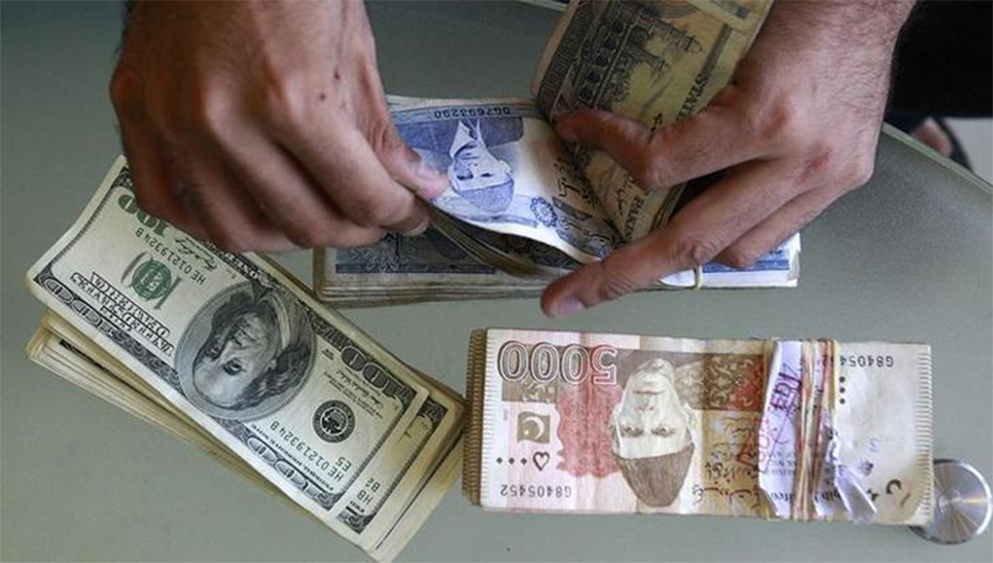The relationship between Pakistan and the United States degraded further on 13th of February when an exclusive Reuters report revealed that the United States had tabled a motion in Financial Action Task Force (FATF) against Pakistan for its non-compliance with regards to anti-terror financing. The motion also received support from UK, Germany and France.
This measure from US came in the backdrop of progressive deterioration of relations between Pakistan and the United States since the election of President Donald Trump. United States persistently accuses Islamabad for its alleged support to militant networks operating at the border of Afghanistan-Pakistan. Furthermore, United States acted on its commitment to suspend security aid to Pakistan for what US considers a rioting role of Pakistan in Afghanistan.
Recently, the United States also expressed profound concern regarding the release of Hafiz Saeed, the leader of Jamaatud Dawa (JuD), which India and US also alleges to be the leader of Lashkar-e-Tayyiba (LeT), a UN-proscribed militant group alleged to be behind the Mumbai attacks of 26/11, and implied that the United States would take punitive measures aversive to Pakistan if it fails to re-arrest Saeed and charge him with terrorism. Accordingly, these two are apparently primary factors behind the United States motion to put Pakistan in grey list of FATF.
The Financial Action Task Force (FATF) is the initiative by G7 countries to construct policies in curtailing money laundering. In the aftermath of 9/11, terror-financing was also introduced in FATF. The next meeting of FATF is scheduled to take place between February 18 to 24 where the tabled motion is to be approved.
Moreover, there is also a failure on part of Pakistan as it failed to project its anti-terror financing operations to the global community. Last Friday, the President of Pakistan quietly enacted an ordinance amending the 1997 Anti-Terrorism act by proscribing individuals and organizations which are included in the list of United Nations Security Council (UNSC).
By this promulgation of ordinance, Pakistan removed the ambiguity between UN sanctions list and national listing of individuals and groups associated with terrorism by inducting Hafiz Saeed led Jamaatud Dawa and Falah-i-Insaniat Foundation (FIF). However, this ordinance was made public on 12th of February, just a few weeks before scheduled meeting of FATF in February.
Perhaps, the motion forwarded by the United States may also has an implied purpose of placating India on the delicate matter of Line of Control (LOC) between India and Pakistan. In recent months, the situation at LOC can be best described as ‘violently uncertain’ with any conflagration between India and Pakistan could lead to a potential war between two nuclear-powered states.
However, on the domestic strata, and if the motion is adopted at TAFT moot, then it will have severe economic consequences for Pakistan particularly in the context of China-Pakistan Economic Corridor (CPEC) as international investors and transactions will find an increasingly volatile and constrained economic environment as a result of Pakistan induction in the TAFT grey list.
Furthermore, in a recent press conference, Pakistan foreign ministry spokesman Mohammad Faisal told that since 9/11, Pakistan had neutralized 17, 614 terrorists within its soil and had cleared more than 45, 000 km of its territory from terrorists control. Pakistani economy also suffered mammoth economic losses of more than USD 120 billions in war against terrorism.
The advisor to Prime Minister for finance, economic and revenue affairs Miftah Ismail had recently stated that the government of Pakistan is working with partners in UK, US, France and Germany to prevent the tabling of motion at TAFT.
Recent appearances in Council of Foreign Relations and Asia Society by Prime Minister of Pakistan Shahid Khaqan Abbasi and Foreign Minister Khawaja Asif were imperative in seeking to inform international public regarding Pakistan’s national interests and its anti-terrorism efforts. However, this engagement should be done on sustained basis and should be a feature, rather than a bug, in our public diplomacy.
Pakistan needs to pursue a robust diplomacy in order to counter the motion before the scheduled moot of TAFT. It also need to undertake an aggressive diplomacy on sustainable basis and should be comprises of policymakers, academicians and journalists in projecting its narrative regarding Pakistan’s anti-terrorism and anti-money laundering efforts in the intellectual and academic communities of the United States and Europe to develop a space and acceptance for its narrative.
